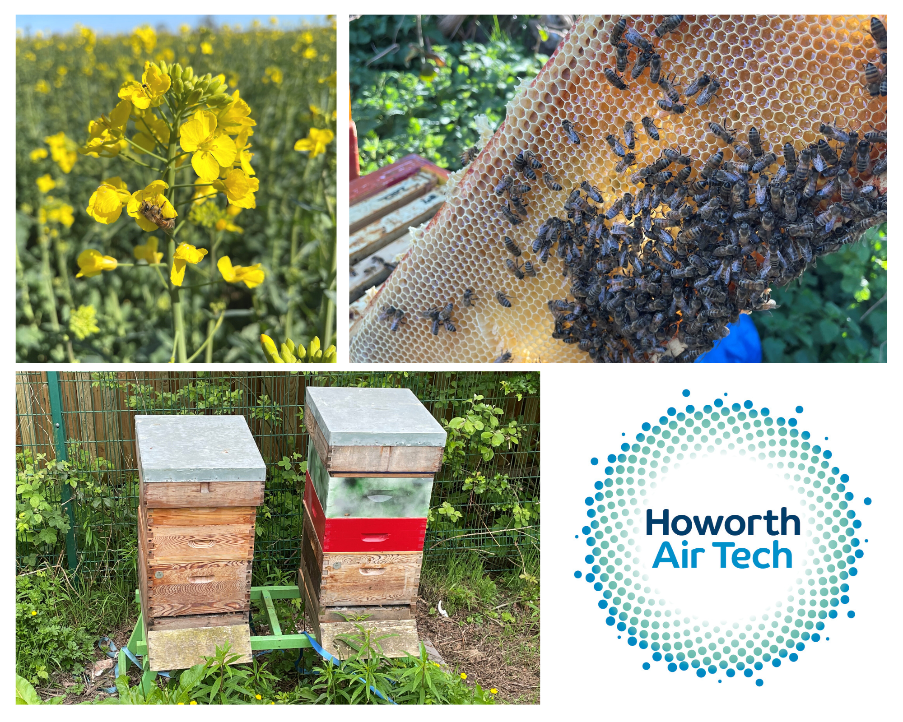Blogs
Howorth Hives Summer Update
Posted:
It's that time of the month again when Scott Gee provides us with an update on our honeybees. August has brought some interesting developments as our three beehives have been buzzing with activity.
August marks the beginning of honey production for our honeybees. With the abundant nectar flows from various flowering plants and trees, our industrious workers have been busy foraging and bringing back nectar to the hives. As the nectar is stored in the honeycombs, the bees will reduce its moisture content through fanning their wings, eventually transforming it into delectable honey. We can expect to see the honeycomb frames filling up with fresh golden honey during this time.
The beekeeper’s role is crucial during this period to ensure the well-being of our bee colonies. Regular inspections are necessary to assess the health of the hives, check for signs of diseases, and ensure there is ample space for the bees to store their honey. With the weather being somewhat "WET" it becomes even more important to monitor their food stores. If the weather prevents them from foraging, we will not be able to harvest any honey, as a only the excess can be taken as honeybee colonies need over 40lbs to see them through the winter months.
Inside the hive, the queen bee is busy laying eggs. The population of the hive is critical during the summer months to prepare for the upcoming winter. The queen's egg-laying abilities will determine the strength of the colony going forward. Our beekeeping team keep a close eye on the brood pattern to ensure that the queen is healthy and laying eggs in a consistent manner.
Even though summer is in full swing, the bees are already preparing for the colder months ahead. As the nectar flow diminishes towards the end of August, the bees will shift their focus to storing enough honey to sustain the colony during winter. Ensuring that each hive has sufficient honey reserves is vital for their survival through the colder months when foraging opportunities are scarce.
As our bees are busy working hard, we must remain vigilant in our pest and disease management efforts. The risk of Varroa mite infestations and other diseases remains throughout the year, and August is no exception. Regular checks and treatments, if necessary, are crucial to maintaining the health of our bee colonies.
August is a critical month for our honeybees in the UK. They are tirelessly bringing in nectar and beginning the honey-making process. Beekeepers need to ensure that they are provided with the necessary support and management to help them thrive. With the weather being less favourable for foraging, our attention to their food stores and overall health is paramount.
